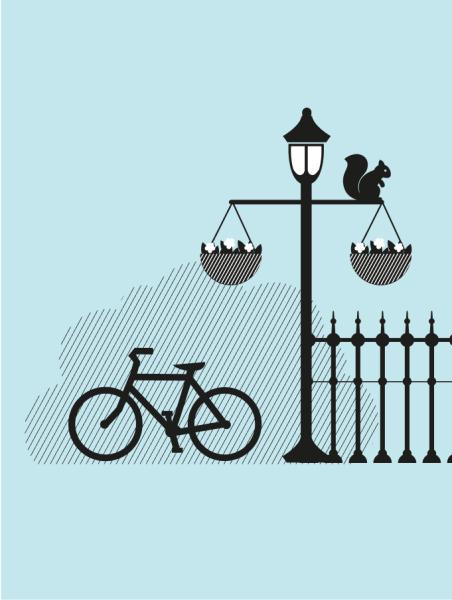Selling A Property With Tenants: What You Need To Know

Can you sell a house with tenants in it? It is certainly possible to sell your property with current tenants in situ; the real question is whether or not it is preferable to do so. There are certainly upsides, but it can also complicate matters; ultimately, depending on the timing, the choice is yours.
When you sell your property with a tenant in place, you sell the property subject to the existing tenancy agreement, meaning that you must find a buyer willing to become the new landlord. The alternative is to complete the sale after the tenancy agreement is terminated, in which case it is an untenanted sale that follows routine sales procedures.
Here is the low-down on what's involved in selling a tenanted property.
What are the benefits of selling a tenanted property?
Selling a tenanted property can invite some complications, as while you have the right to sell your property, the tenants continue to have rights that you must, of course, comply with. That said, there are some significant upsides to selling a buy-to-let with tenants in situ, including:
Maintaining the rental income
One of the primary motivations for selling a rental property without first evicting the tenants is maintaining the rental income. Selling a property can be a precarious process, and keeping your tenants on ensures you continue receiving the rental payments until a property sale completes.
Additional savings
As well as maintaining the rental income, selling a tenanted property means avoiding taking over other additional costs, such as utilities, council tax, etc. If you were to sell the property as a vacant listing and a sale or two falls through, you could be stuck covering multiple costs for many months.
Potential for a quick and easy sale
Most landlords are experienced investors eager to complete a sale quickly once the decision has been made. Unlike traditional buyers, investors focus purely on the viability of a deal.
So long as your tenants have a good track record and your ROI (Return On Investment) figures are sound, you have a good chance of attracting a buyer who is motivated to complete quickly.
Related: Landlord Tax Updates For 2022 And 2023

Selling the property 'as is'
When you sell a tenanted property, you have the advantage of being able to sell the property 'as is.' This means that, so long as the property has no current repair or maintenance needs outstanding, there is no requirement for you to take on any refurbishments or redecorations in order to sell.
In addition, as a compliant landlord, your buyers will also have the peace of mind that the property is fully compliant; no need to carry out new safety checks, which is another perk for potential buyers.
Minimising disruption to tenants
It is very rare for a new landlord to immediately evict perfectly good tenants once the sale completes, and keeping them on can sometimes even be written into the contract.
Selling your property as tenanted affords your tenants the peace of mind that they will likely not be made to leave their home. Depending on the type of investor and landlord you are, it may be important to you to protect your tenants from being uprooted. This may also depend greatly on the kind of tenant you currently have - you will understandably favour a responsible, reliable, long-term tenant over a troublesome tenant who breaches their tenancy agreement.
A problematic tenant will likely make selling the house challenging, as most potential investors will want to steer clear of taking on a difficult tenant.
What are the disadvantages of selling a tenanted property?
Selling a property can be stressful enough without the added complexity of having a tenant in situ. Some of the potential drawbacks to selling a tenanted property include:
Selling to a niche market
When demand in the property market is high, tenanted properties can attract buyers with no intentions of becoming landlords. Instead, these buyers will simply evict the tenants as soon as the agreement allows them to, which is a risk you (and your tenants) may have to take.
Ultimately, though, the market for tenanted properties is significantly smaller than for vacant sales, resulting in a real chance that the property won't sell as quickly as it would if it were empty.
Related: What's The Latest On The Renters' Reform Bill?
Viewing complications
Hopefully, you have reasonable tenants in place willing to work with you to facilitate property viewings for potential buyers. Still, they aren't obliged to agree to every viewing request, which can complicate the sales process.
While you could reasonably expect them to be happy that you are selling the property as tenanted instead of evicting them, they still have a right to their 'quiet enjoyment' as per the law.
Notifying your tenants of your intention to sell
When you decide to sell your property as tenanted, your first intention should be to ensure that the relationship between you and your tenants is respectful and agreeable as possible. Unhappy tenants can make for a very unpleasant sales process.
Some pointers to help include:
- Be courteous and reassuring - your tenants may understandably feel insecure at the news of the sale, so be understanding and reassuring; ultimately, you are choosing to sell it as a tenanted property, thus protecting their right to stay in situ, at least until their current agreement ends. Take the time to make sure they understand that the new owners cannot change the T&Cs of their current tenancy agreement without their cooperation.
- Notify them before marketing the property - make sure that you explain your intention to sell to your tenants before making any moves; if they find out on the grapevine that their home is advertised for sale, it could understandably cause panic and ill feelings toward you.
- Give them first right to refusal - even if you are sure that they either would not or could not purchase your property, give your tenants the respect of offering them the property for purchase before putting it on the market; especially if it has been their home for a long time (and they have a family), it will likely mean something to them that you gave them this consideration.
Scheduling viewings
Scheduling and arranging viewings that are agreeable to your tenants can be tricky. Ideally, you have reasonable tenants, but they still have rights you must respect. Things to consider when arranging viewings include:
- Ensuring that you always give your tenant an absolute minimum of 24 hours of written notice of a viewing
- Ensuring that you receive the tenant's consent before carrying out a viewing
- Being careful not to cause so many disruptions that they feel their right to live in quiet enjoyment is being breached
While it may be frustrating, there are a number of valid reasons that could make it difficult for your tenants to agree to all viewings. For example, they may work from home or be uncomfortable having strangers in their home and struggle to take time off work to attend the viewings. Furthermore, they may suffer from personal issues that make it difficult for them to manage the anxiety of people viewing their home, or they may simply feel that viewings should be arranged on their terms.
Flexibility will need to be afforded on both sides, and as best as you can, approach the topic with understanding and respect for the best outcome. It can also minimise such issues by arranging block viewings wherever possible, instead of trying to take each potential buyer through separately.
How does selling a tenanted property affect its value?
A sitting tenant can affect the value of the property in several opposing ways:
- The property could be worth more to a landlord who sees having good tenants in place as a great investment opportunity, or
- The buyer may insist on running references on your tenant, resulting in added upfront costs; additionally, they may be bound to the existing tenancy agreement terms should the tenant refuse to sign a new one
Can the new landlord evict the tenants?
When buyers purchase a tenanted property, they are legally obliged to take on any existing tenancy agreement. They can request that the contract be edited, but the tenants can decline to cooperate with any changes, and the original terms must then be upheld.
Suppose the existing agreement is an Assured Shorthold Tenancy agreement. In that case, the buyers can regain possession of the property once the fixed term ends or by using a section 21 during a periodic tenancy.
How to sell a tenanted property
As with any property sale, you are free to go about the sale (and marketing thereof) however you prefer. However, choosing an agent with experience in selling property with tenants can certainly be beneficial.
When selling a house with tenants in situ, documents to provide to the buyers includes:
- The existing tenancy agreement
- Copies of inventories
- A valid gas safety certificate
- A valid Energy Performance Certificate
- A valid Electrical Installation Condition Report
- Information regarding any rent arrearsInformation regarding any outstanding or ongoing maintenance or repair issues
Once the contracts have been exchanged, the new owners will officially become the tenant's new landlord. Upon completion, rental income will be apportioned between the seller and buyer, although it is often completed on a rent payment day to make the process easier.
What about the tenancy deposit?
Presuming you have complied with the legislation regarding tenancy deposits, your tenant's deposit will be secured in a deposit scheme.
Whether you handle it yourself or have your conveyancer do it on your behalf, the deposit simply needs to be transferred to the new landlord. If you choose to do it yourself, a quick call to the applicable deposit scheme should clarify what you need to do to action this.
Choosing to sell the property as vacant
If for whatever reason, you decide that you'd rather sell the property as vacant, you will need to go through the proper legal channels to terminate the tenancy. Depending on the terms of the agreement, this may take many months, so you may need to be patient.
Are you thinking of buying or selling a property?
Whether you are thinking of buying or selling a property tenanted or otherwise, get in touch and see how we can help you!
You can reach us on 0204 5793 011 to chat through your property needs, or start by hopping on to our online valuation tool for an instant idea of your property's current market value.
Looking for advice?
If you're looking to let or sell your property, we can help. Get in touch with your local branch or book in for a property valuation.

Contact Us
Got a question, general enquiry or something else?
You may also like
Since we started in 1818 we have grown and joined one of the UK’s largest property groups, we can save you time and money by offering a range of services and expertise under one roof.
_5448_953_85_32_o.jpg)





